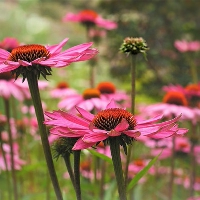1. Wash the chicken legs and drain the water. Cut the chicken legs in the thick place. Cut the bones to make them tasty. Start seasoning according to personal preferences. Black pepper, salt, sesame oil, wine, and soy sauce.
2. Grab each chicken leg with your hands, and let each chicken leg be evenly coated with spices. Wrap the plastic wrap and marinate it for more than an hour (I marinated it for 5 hours). Break the eggs and add some sesame seeds.
3. Add a little salt starch and flour, mix them half and half (I use low gluten flour). Take one of the cured chicken legs and put it in the egg liquid, roll it? It's not easy to roll the chicken leg covered with egg liquid and soaked with egg liquid into the flour. How about using chopsticks directly? Make sure to wrap it evenly. Repeat again, and continue to dip it (you can also wrap bread bran after dipping the egg liquid for the second time). Put oil in the pan and heat it.
4. Then, deep fry the chicken legs and remove them. Cool them a little and fry them again. This time, the oil temperature should be slightly higher.
5. One minute or so is enough. Time and temperature should be well controlled. Don't overdo it! (The fire is too hot, and the inside is not cooked.) You can sprinkle some cumin pepper powder, which is also delicious. The temperature cannot be too high, or if the outside is cooked, the inside is still raw, you can also boil it and then fry it.

